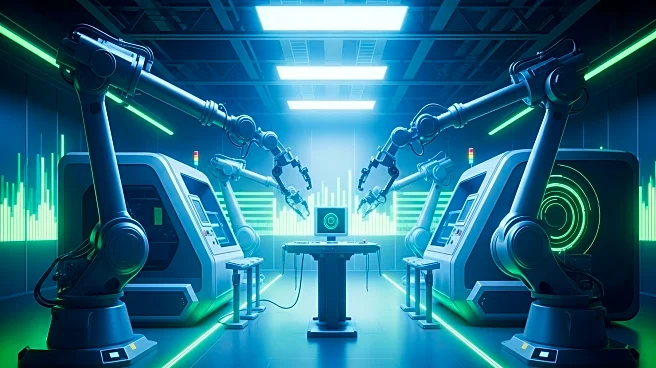What's Happening?
The global manufacturing sector is facing a potential shortfall of over eight million jobs by 2030, prompting a shift towards engaging younger generations, specifically Gen Z and Gen Alpha, to fill these gaps. The World Economic Forum has emphasized the need for industries to act as 'industry revivalists' by effectively communicating the benefits of working in sectors at the forefront of technological innovation. This includes areas such as AI, robotics, and virtual reality. A significant portion of Gen Z, about 27%, has expressed interest in working with cutting-edge technologies, which presents an opportunity for industries to attract this demographic by highlighting the role of technology in driving innovation and sustainability.
Why It's Important?
This shift is crucial as it aligns with broader goals of achieving net zero carbon emissions and addressing climate change. By integrating younger generations into the workforce, industries can leverage their familiarity with digital technologies to enhance productivity and sustainability. This transition is not only about filling job vacancies but also about transforming the perception of manufacturing from a necessary evil to a symbol of innovation and environmental responsibility. Successfully attracting Gen Z and Gen Alpha could lead to significant advancements in sustainable practices and economic growth, benefiting both the industry and the planet.
What's Next?
Industries must adapt their recruitment strategies to appeal to the values and interests of younger generations. This includes emphasizing the meaningful impact of their work and the role of technology in creating positive change. Companies, technology providers, and governments need to collaborate to reshape the image of heavy industry, making it more appealing to digital-native generations. This involves using platforms like social media to engage with potential young employees and communicating the sustainability and innovation aspects of industrial work.
Beyond the Headlines
The integration of Gen Z and Gen Alpha into the workforce could lead to long-term shifts in how industries operate, with a greater focus on sustainability and innovation. This demographic is motivated by the opportunity to make a real difference, which could drive industries to adopt more environmentally friendly practices and technologies. The challenge lies in effectively communicating these opportunities and reshaping the traditional image of manufacturing to align with the values of younger generations.








